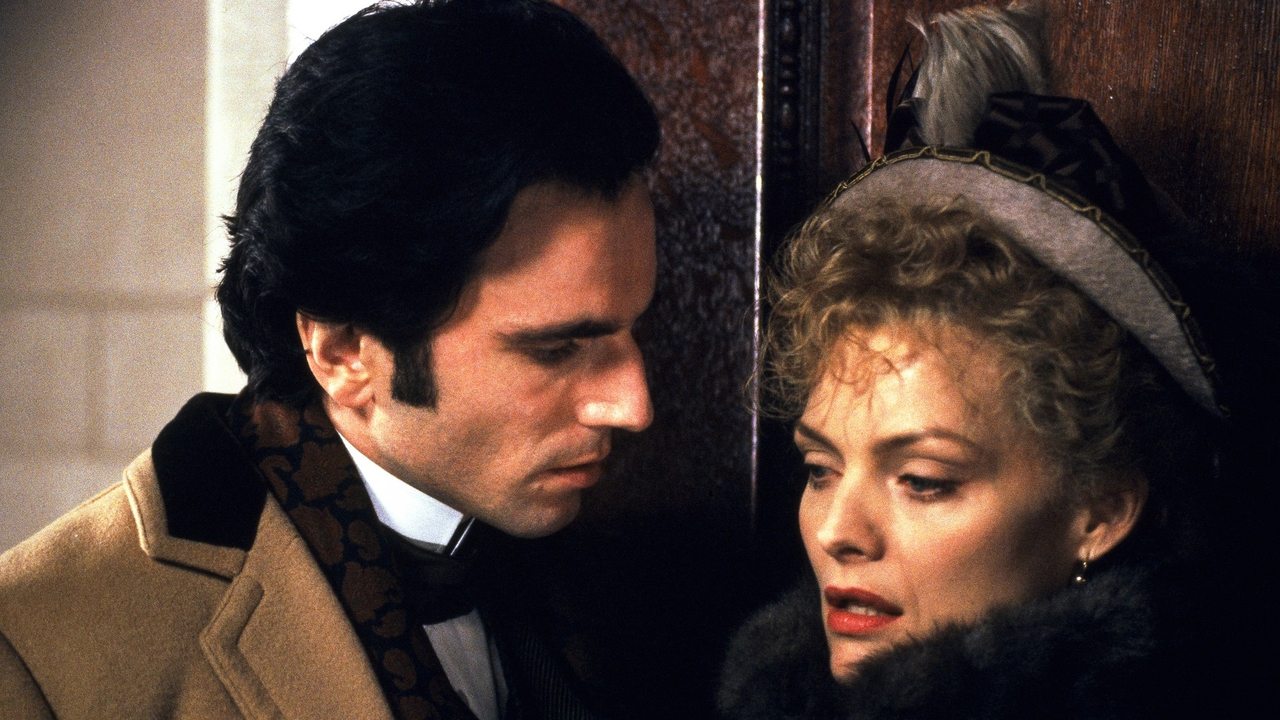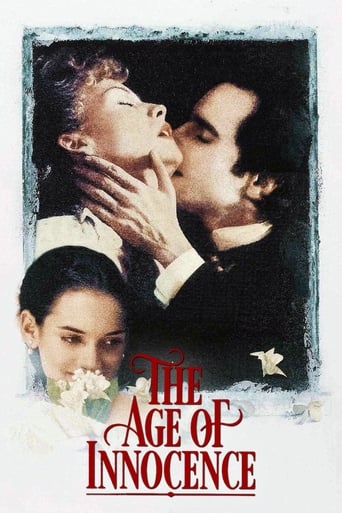Tedfoldol
everything you have heard about this movie is true.
ChicRawIdol
A brilliant film that helped define a genre
SpunkySelfTwitter
It’s an especially fun movie from a director and cast who are clearly having a good time allowing themselves to let loose.
Dana
An old-fashioned movie made with new-fashioned finesse.
orcdictator
Wow. Before we begin, I want to take a moment to appreciate just how baffled I am by the amount of people writing reviews while using any 4-syllable word just to sound ''refined'', high class and/or intellectuals. Well, I guess that by today's standards, anyone who uses more than three syllables in a single word is considered to be a professor. I'm really laughing my ass off as I write this. Wow.*AHEM* LET'S GET STARTED, LADIES AND GENTS!First of all, I've got to make it clear that this movie is devoid of any type of gunfight, blood or whatever. Do NOT expect action out of this film. What Mr. Scorsese shows us here is... you guessed it, a love story. Man, do I hate love stories. But not this one. This movie is, to me at least, art. I don't think I can explain enough without spoiling things here and there, so let's just talk about the basic stuff.
*1.ACTING-* Superb. Daniel Day Lewis really delivers, as expected. Oh and did I mention that I love Michelle Pfeiffer's acting as well? No? Well I do.
*2. CINEMATOGRAPHY-* Excellent! The way the camera just ''strolls'' slowly through each scene, emphasizing on the characters and the story, just great. Mr. Scorsese, have another cookie.
*3. PLOT-* Although it isn't my kind of story, which is a romance story, I think it is a well-made piece of work. It progresses at a pace that it doesn't drag on for too long, nor does it go ''A-OOH OOH GO FAST'' like most speedo apes writing scripts nowadays, which dare I say, end their movies abruptly and leave you cringing in your seat. One more thing I liked is that the mob family in this movie doesn't use violence, as a fellow reviewer (a professor!) mentioned somewhere in this review thread. That's something we don't see in movies often! They instead use little more than smiles, politeness and stuff like that. And that is just impressive.*Overall, I liked it, I recommend it, my actual review is 8.7 stars but whatever, here's a 9.*
abenr
If Scorsese determined that he could not film Edith Wharton's masterpiece without the use of narration, he should not have taken on the project. Motion pictures that rely on narration have two strikes on them from the start. For those who do not mind the mixed media, this is a fine adaptation of the novel. One cannot fault the acting or the cinematography, but I do wish Scorsese had found a way to create the film without the narration.
khnumber8
Best actor in this film?? Joanne Woodward (she was the narrator !!) I honestly mean this... her narration was just great, she had the perfect inflection in her voice at all times. Daniel Day Lewis did a fine acting job as usual, but NOT GREAT. There was virtually no variation in his performance... he was the same stick-up-the-arse character all the time. As for Michelle Phiffer, she was her usual self, nothing spectacular. I actually thought Winona Rider gave the best performance of the three "leads". She was totally believable and had just the right nuances at the right time.As for the movie... it certainly is interesting as a period piece and repressed/suppressed love story, but Martin Scorsese makes his usual mistake as a director of this film.... he hits one note, emotionally, and keeps hitting and hitting and hitting and hitting this note for the entire picture. It's tiresome, redundant, and frustrating for the viewer. The "note" of this film is unactualized love and socially "necessitated" repressed behavior. I wanted to say: OK, OK !!! I get it, let's move on to some other things... subplots, variations in behavior among the main characters, SOMETHING, ANYTHING.Some people have remarked that this film is a departure for Scorsese. I think not.... his thing is beating a dead horse.
commanderblue
Martin Scorsese time travels to New York, 1870, to depict a period piece of romantic proportions and to ensure his versatility as a director. Scorsese is a historian when it comes to the setting of any of his films. "The Age of Innocence" is one of his most refined movies. The décor of the 19th century, the languages and accents of its people, and even the fine dining instruments are all accounted for. In many ways, Scorsese's eye for detail is a wakeup call for contemporary New Yorkers today. The Age of Innocence is meaningful in title and it acts as a precursor, in Scorsese-lore, to the myriad of other New York pictures the director would collect in his repertoire.Newland Archer (Daniel Day-Lewis) is a humble New Yorker and a lawyer in his profession. It is a profession that rivals entrepreneurs, aristocrats, bankers, and architects; there is no hostility among the men, but they fraternize as if they were Gods. Although Archer appears well situated and indignant, he is actually suffering profusely inside from the suffocation and inexorable norms of "high society". This characterization fits well with Scorsese's usual motifs. In "The Age of Innocence", Newland Archer is an insider looking out. One of the "outsiders" that catches Archer's attention is Countess Ellen Olenska (Michelle Pfeiffer), the cousin of his fiancé May (Winona Ryder). Ellen flouts high society and as a result is the topic of malevolent gossip that pervades the closely knit families.Archer falls for Ellen but cannot abandon his feelings (or image) for May Welland. Matters complicate when Ellen wishes to divorce her husband and Archer must facilitate the separation with legality. Between all of these stressful emotions, he only wants to be with and to love Ellen until the very end. But reality is merciless. Ellen remains an angelical dream to Archer throughout the film. He goes on with his duties deadpanned. All the while Ellen slips in and out of his desires. But there is a problem here. Day-Lewis and Pfeiffer never convinced me that they were truly radiant for each other. Perhaps that's how extra-marital affairs were run in the "old fashioned days"—inconspicuous and strained. But Archer's affections for Ellen to endure a lifetime (even after having many children) become too Shakespearean even for Scorsese to translate. Ellen became an alibi for Archer to leave the life of ritzy, high society.Nevertheless, "The Age of Innocence" will not disappoint any Scorsese fan. It's pleasant to the eye, and the aesthetics of the camera movement (from the graceful tracking shots to the zoom ins) are unusually effective in illustrating a period piece stereotyped for BBC territory. Despite being a period piece, the themes here are also relative to Scorsese (from the social outcast to the importance of family). I think Scorsese effectively created a film that embodied some of New York's oldest social statuses. It was the constipated love story that hampered Scorsese's direction. Maybe unrequited love is universal, but this is the age of innocence.

